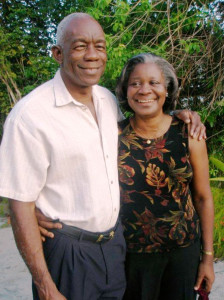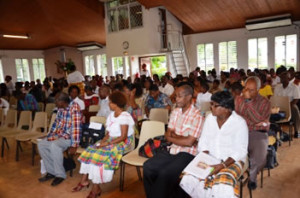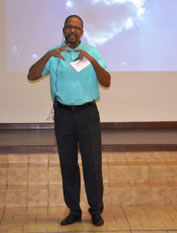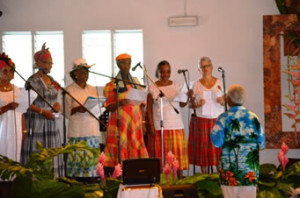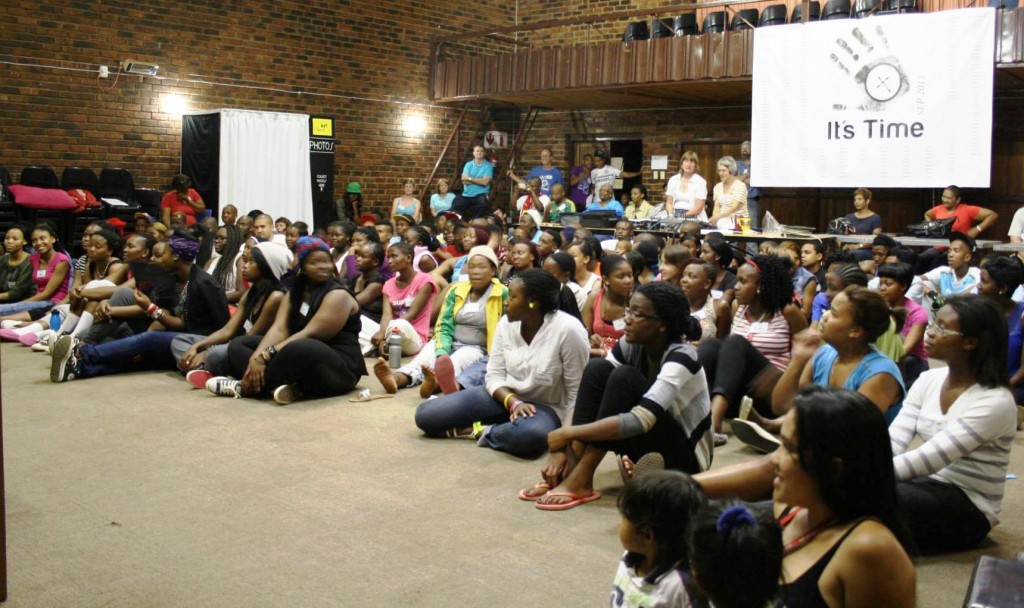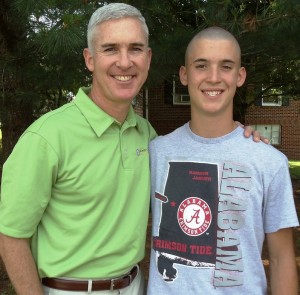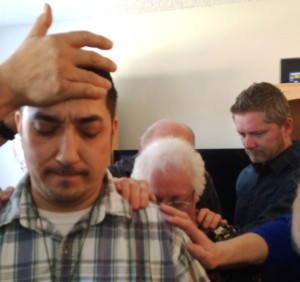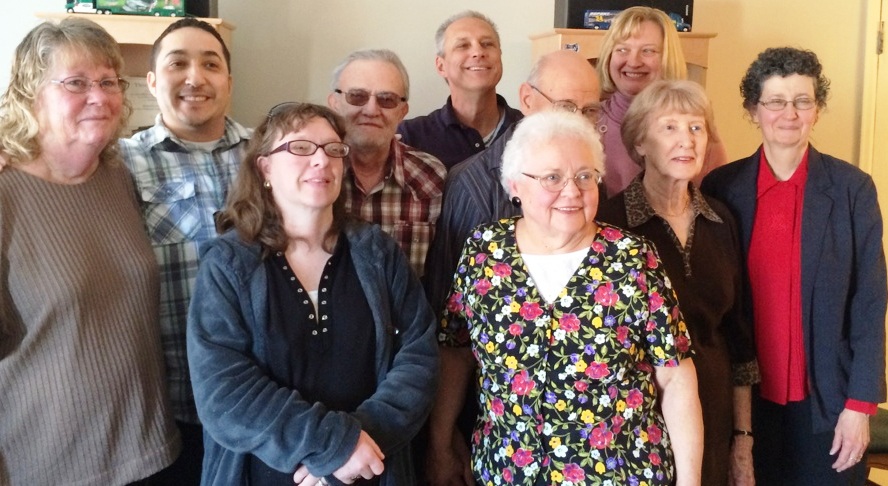Dear Brothers and Sisters in Christ,
 This week let me draw your attention to two celebrations coming next month: Black History Month and National Marriage Week. Though not part of the historic Christian calendar, these celebrations do highlight two important issues.
This week let me draw your attention to two celebrations coming next month: Black History Month and National Marriage Week. Though not part of the historic Christian calendar, these celebrations do highlight two important issues.
In the U.S., February is celebrated as Black History Month. First proposed in 1920, it became an official national celebration in 1970. The purpose is to draw attention to the significant contributions made by African Americans in the fields of art, literature, science and industry.
Though many of GCI’s U.S. churches acknowledge Black History Month, some have asked, why single out this one group? What about other minorities—haven’t their contributions also been neglected? That’s a fair question, but the fact that we have a nationally recognized celebration of Black history shows the progress our society has made in race relations.
My friend, Curtis May tells of indignities and humiliations he experienced growing up in the segregated South. I remember attending one of our congregations as late as the mid-60s, where African-American members were seated in a separate section of the hall. Though that practice seems unthinkable now, it still astonishes me that so many of us—black and white—accepted it as “God’s way.” It shows just how much we can be influenced by the trends and opinions of the world around us—both for good and bad. For an interview with Curtis about Black History Month, go to www.gci.org/history/bhmonth.
Thanks to Dr. Martin Luther King and the civil rights movement, America has become a more just society in matters of racial equality. Though we’re far from perfect, our national acknowledgement of Black History Month shows that we have come a long way, though it should also remind us that we still need further progress as a nation, as a church and as individuals.
Jesus accepts everyone, just as the old hymn reminds us: “Jesus loves the little children, all the children of the world. Red, brown, yellow, black or white, they’re all precious in his sight. Jesus loves the little children of the world.” These lyrics would make a good focus for a discussion with your congregation during Black History Month. They also can inform celebrations of other cultures and ethnicities. For additional resources for Black History Month celebrations, go to:
- www.biography.com/tv/classroom/about-black-history-month
- www.britannica.com/blackhistory.?q=go/BlackHistory
National Marriage Week Celebration
This year, the U.S. celebration of National Marriage Week will occur on February 7-14 (for information go to www.nationalmarriageweekusa.org/). Other countries have similar celebrations at other times.
Though we’ve seen progress in race relations in the U.S., I’m saddened to note that in the Western world, the institution of marriage is severely threatened. Increasingly, committed marriage relationships are viewed as optional—one of several possibilities for people choosing to live together. National Marriage Week celebrates traditional marriage, noting that marriage yields better results in combating poverty, in child-rearing, and in producing happier, healthier and longer lives.
In the insightful and sobering report, “Why Marriage Matters: Thirty Conclusions from Social Science,” a group of family scholars summarized findings from the social sciences concerning divorce, cohabitation and marriage in the U.S. The lead author, W. Bradford Wilcox, who directs the National Marriage Project, wrote this:
Family instability is on the rise for American children as a whole. This is mainly because more couples are having children in cohabiting unions, which are very unstable. This report also indicates that children in cohabiting households are more likely to suffer from a range of emotional and social problems—drug use, depression, and dropping out of high school—compared to children in intact, married families. [A summary of the report is available at www.familyministries.org/files/MarriageMatters_final.pdf. To order the full report, go to http://www.amppubgroup.com/subject/social-science/why-marriage-matters-third-edition-twenty-six-conclusions-from-the-social-sciences/.]
Family instability affects older people too. Divorce among those age 50 and over is at the highest level on record. A National Center for Family and Marriage Research study reports that in 1990 only one in ten people 50 or older got divorced. By 2009 it was one in four. If that pace of increase holds, in 2030 the number of over-50 divorces will top 800,000 (The Gray Divorce Revolution, 11/13).
That these trends are taking their toll in our society is no surprise, for the traditional marriage relationship is God’s design. We don’t have to join the debates raging about the alternatives, but we can show, by example, that traditional marriage is what God intends. Here is an area where Christians should be shining lights in a world that has lost its way.
As pastors and ministry leaders, we have an important role in helping married couples grow stronger in their relationships. As we all know, marriages (including our own) are under constant attack. Oftentimes the worst attacks come simply through neglect. It’s what we “pour into” our marriage that makes it a success. The greatest source of this “in-pouring” is the grace of God both in creation (creating the institution of marriage itself) and in redemption (with God’s gifts of forbearance, forgiveness, unconditional love and positive, hopeful regard toward one’s spouse). The ultimate foundation for all human relationships is the reality that in Jesus Christ our Triune God has entered into a relationship of covenant love with all humanity, declaring that he will never leave or forsake us. He never will divorce us.
We come to know more and more profoundly the meaning and nature of God’s covenant love in Christ as we live out that love in all our relationships, including in marriage and with people across racial boundaries. Doing so enables us to know and experience more deeply God’s ever-faithful covenant love that not only strengthens relationships but restores seemingly dead relationships back to life. This is the resurrection power of Jesus’ own love and life.
Though we’ve made progress in race relations, the decline in traditional marriage values is a sober reminder that we live in a broken and fallen world. It is a world that desperately needs the moral guidance, healing touch and sure hope that God provides.
Please continue to remind those you serve of God’s faithful covenant love and then that the most powerful impact we make as Christians is by our examples of sharing that love. May we all “go out into the world uncorrupted, a breath of fresh air in this squalid and polluted society.” By our examples, may we “provide people with a glimpse of good living and of the living God” (Philippians 2:15 The Message).
Your brother in Christ,
Joseph Tkach

